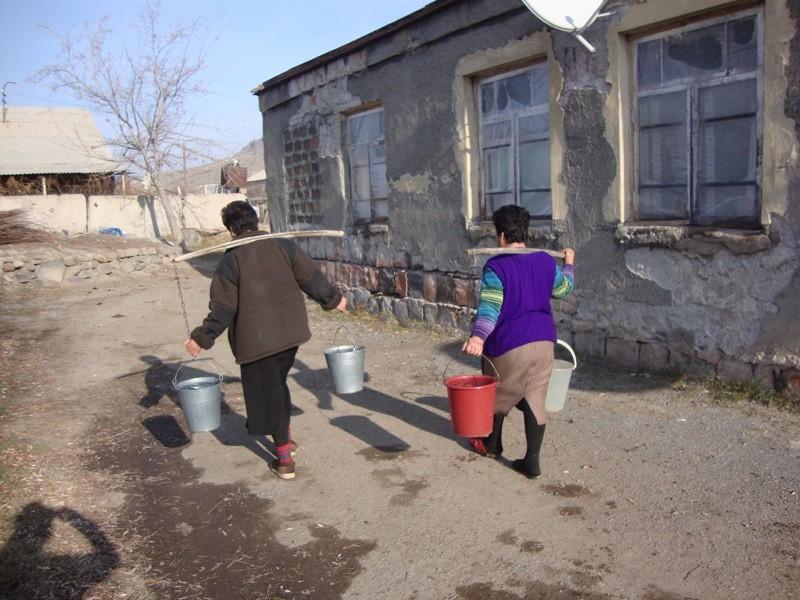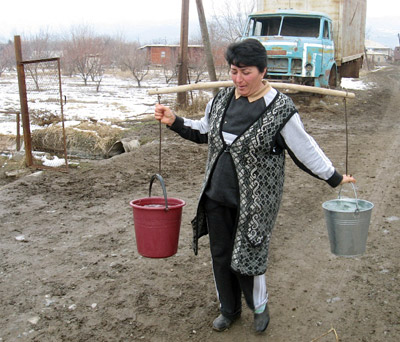
Bagaran Diary: In This Border Village Residents Still Fetch Water in Pails
In the village of Bagaran in the southern Armenian region of Armavir, the men folk crouched by the house walls were complaining that their wives were so tuckered-out after ferrying water from the well, they couldn’t do any housework. The village, located just one kilometer from the Turkish border, isn’t outfitted with a drinking water supply pipe.
The villagers say that there’s only one place to get water and all 600 residents got there. Across the border, in Turkey, lie the ruins of the ancient cities of Yervandakert and Bagaran, the village’s namesake.
Villagers complain – “This isn’t living”
It’s beneath the dignity of the men folk to carry water in the -----, but they’ve taken pity on the ladies whose backs have been bent under the weight. “We’re living in the 21st century but we still have to carry water in these contraptions. What kind of life is this,” complained resident Grigor Ghazaryan. The water used by the villagers for drinking comes from an underground source and isn’t treated in any way. The water collects in the stream and the women scoop it up in buckets. Village Mayor Gevorg Margaryan told “Hetq” that the water usually isn’t chlorinated. “The major problem her in Bagaran is the water. I’ve gotten in touch with the proper authorities on several occasions but there’s been no response,” stated Mayor Margaryan, who said he wasn’t even aware in the 2010 budget envisaged constructing a water distribution system or not.
Experts say Bagaran water not fit for drinking
Kamsar Babinyan, who heads the Armavir District Branch of the Hygienic and Antiviral Inspectorate, told “Hetq” that the water being consumed in the village doesn’t meet required standards for drinking water. “We periodically test the water in Bagaran and I can tell you it’s not for drinking. We’ve sent our test results to the appropriate government agencies,” noted Mr. Babinyan. He argued that if the water wasn’t periodically treated with chlorine, there was the possibility of illnesses breaking out in the village. Mrs. Rima, a Bagaran village resident, fetches water several times a day since she has a big family. She waved off any concerns that the water quality was poor and that they could get sick by drinking it. 
Mrs. Rima seemed more concerned about the roads in the village and how they turn to an impassable maze of mud when it rains. “When I have to fetch water on days that it rains I’m covered in mud up to my neck. This is no life, let me tell you,” she adds. Residents of Bagaran seem to be at their wits end. They complain that no one from the national government seems to be interested in their plight. The only person who visited the village with any real power last year was the Regional Governor Ashot Ghahramanyan. He looked around, asked the villagers what problems they faced, and then left. Nothing has changed since.
 Videos
Videos Photos
Photos
Write a comment